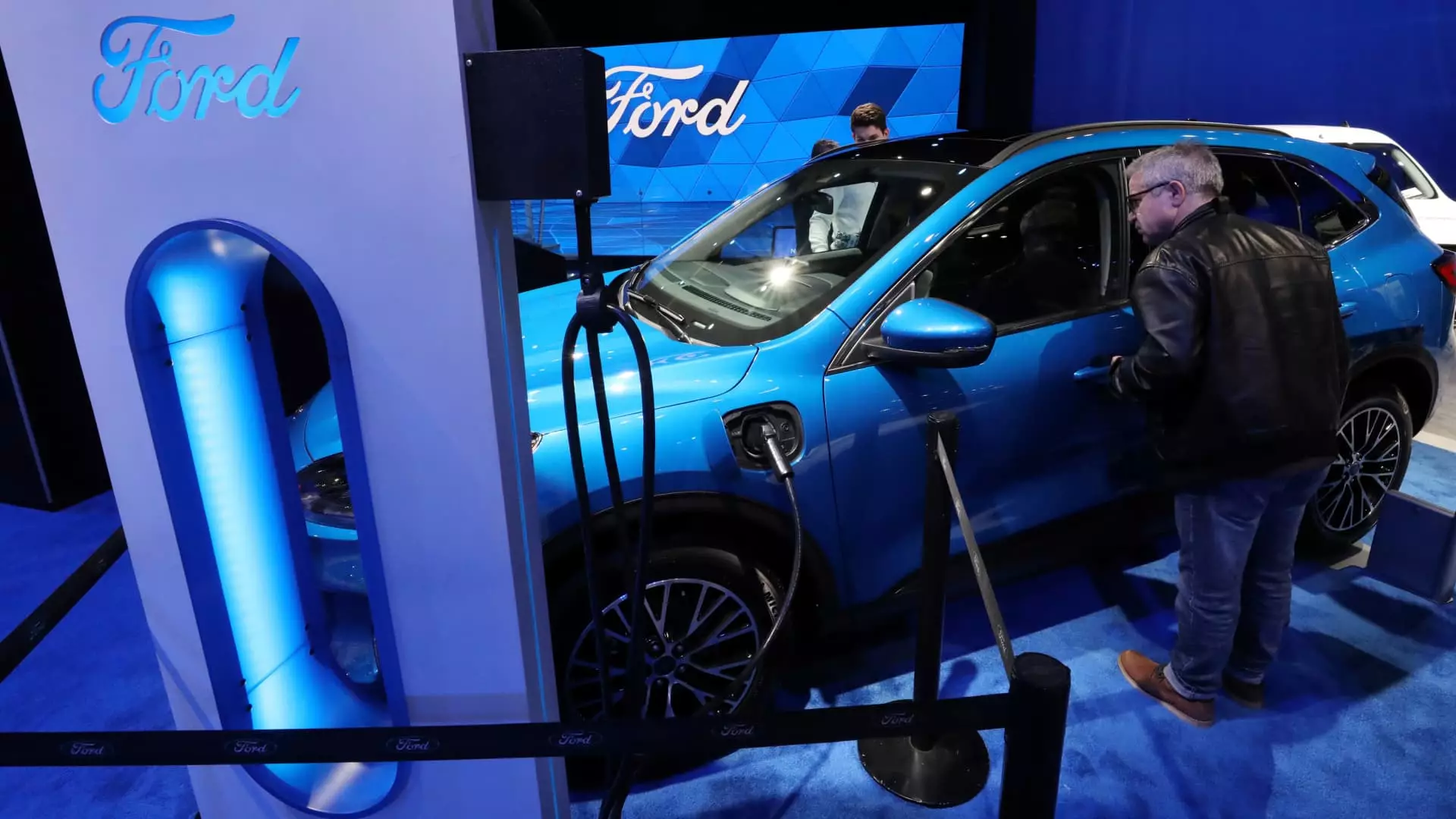Ford Motor’s recent decision to delay production of a new all-electric large SUV and pickup truck signals a shift towards offering hybrid options across its entire North American lineup by 2030. The Detroit automaker announced that it will be investing in EVs but is postponing the production of the three-row SUV and next-generation pickup due to slow adoption rates and high production costs in the industry.
Despite being the second-ranked EV brand in the U.S. behind Tesla, Ford has faced challenges in the EV market. The decision to delay or cancel $12 billion in planned spending on new EVs reflects the changing dynamics in the industry. The shift towards hybrid options aligns with Ford’s strategy to scale a profitable EV business while using capital wisely.
The three-row SUV, part of a $1.3 billion investment in Ford’s Oakville Assembly Plant in Canada, was initially scheduled for production in 2025 but has been pushed back to 2027. The next-generation pickup, codenamed “T3,” is now expected to be produced in 2026 instead of late 2025. This delay allows Ford to monitor the consumer market for three-row EVs and leverage emerging battery technology to enhance durability and value for customers.
Ford’s decision to focus its EV efforts on new plants, such as the “BlueOval City” campus in Tennessee, highlights the company’s commitment to innovation. By investing in breakthrough, next-generation EVs that are fully software-enabled, Ford aims to provide customers with superior digital experiences and a range of potential services. The company is continuing construction of battery plants in Michigan, Tennessee, and Kentucky to support its EV production goals.
Ford’s electric vehicle sales increased by 86% in the first quarter of 2024 compared to the previous year, signaling a growing demand for EVs. Hybrid sales also rose by 42%, demonstrating the appeal of hybrid options to consumers. However, Ford’s “Model e” electric vehicle business incurred significant losses in 2023, with expectations of further losses in 2024. Despite challenges, Ford remains focused on expanding its EV portfolio and enhancing its market position.
Ford’s decision to delay production of new all-electric vehicles while shifting towards hybrid options reflects the evolving dynamics of the automotive industry. By prioritizing profitability and strategic investments, Ford aims to capture opportunities in the EV market while addressing market challenges effectively. The company’s commitment to innovation and customer-centric solutions positions it for long-term success in the rapidly changing automotive landscape.


Leave a Reply